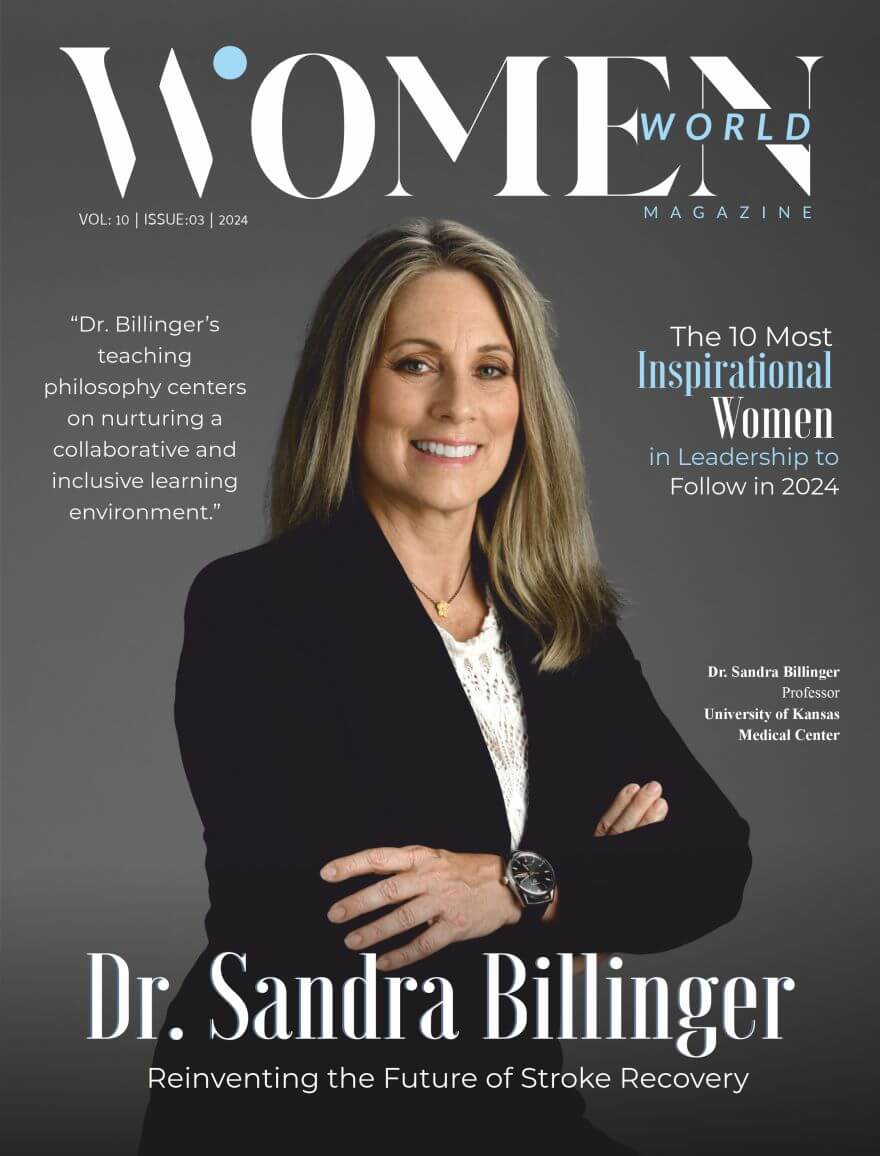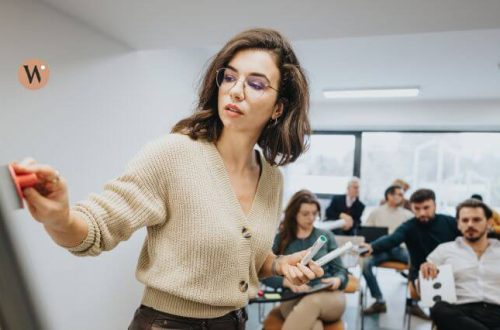Connecting Research, Innovation, and Real-World Application!
The quest for innovative solutions to intricate health issues drives medical research forward. A particularly impactful area is stroke recovery, dedicated to rehabilitating patients following cerebrovascular incidents. This field aims to improve the quality of life for stroke survivors through meticulous scientific research and the creation of advanced therapeutic methods. The blend of exercise science with neurorehabilitation has emerged as a highly promising strategy, providing fresh perspectives on enhancing recovery processes and boosting overall brain health.
A key advocate in this domain is Dr. Sandra Billinger, who serves as Professor and Vice Chair for Stroke Translational Research. Her journey into academia and research was shaped by personal challenges that ignited her passion for advancing stroke recovery. Combining clinical practice with academic insight, she has significantly contributed to understanding how physical activity impacts stroke rehabilitation. Her work demonstrates a strong commitment to both scientific exploration and practical applications that significantly enhance patient outcomes.
The University of Kansas Medical Center, where Dr. Billinger is a prominent figure, leads in this research area. Renowned for its innovative approach to medical studies, the institution focuses on translating scientific breakthroughs into tangible improvements in healthcare. Through its robust research initiatives and interdisciplinary collaborations, the University plays a vital role in progressing stroke recovery and brain health, reflecting a dedication to excellence in medical science and patient care.
Join us as we delve into the inspiring journey of Dr. Billinger:
Transforming Personal Struggles into Advancements in Stroke Recovery Research
Dr. Billinger’s unconventional path to academia began as a dental assistant. A car accident not only led to her son’s premature birth but also prevented her from returning to work. As a single parent facing financial challenges, she opted to pursue further education.
While studying at Fort Hays State University, Dr. Billinger became captivated by the intricate links between exercise and stroke recovery. With minimal exposure to brain health and neurorehabilitation, her inquiry only deepened. This thirst for knowledge led her to pursue advanced degrees at the University of Kansas Medical Center, where she enrolled in a dual degree program, obtaining a Master’s in Physical Therapy and a PhD in Rehabilitation Science.
Beneath the mentorship of renowned experts in rehabilitation science, Dr. Billinger secured a career development award, with Dr. Randolph Nudo—an authority in neuroplasticity—as her mentor. This award propelled her research in stroke recovery, allowing her to contribute to groundbreaking studies and witness their practical effects on stroke rehabilitation and brain health.
Pioneering Innovation in Stroke Recovery and Brain Health Research
In her roles as a professor of neurology and Vice Chair for Stroke Translational Research, as well as the Assistant Director of the NeuroImaging Core at the KU Alzheimer’s Disease Research Center, Dr. Billinger fosters research initiatives and brings together interdisciplinary teams to tackle significant scientific inquiries. Her position requires a profound understanding of the literature to stimulate innovation in stroke recovery and brain health.
She leads the Research in Exercise and Cardiovascular Health Laboratory, conducting NIH-funded studies focusing on stroke recovery and brain health. Her investigations aim to optimize exercise intensity, fostering improvements in mobility and cognitive health for stroke patients.
Utilizing rigorous scientific methodologies, Dr. Billinger meticulously designs experiments, analyzes findings, and disseminates research. She notably created the total body recumbent stepper (TBRS) submaximal exercise test, aimed at better assessing post-stroke fitness, which will assist healthcare providers and exercise physiologists in prescribing accurate exercise regimens.
Dr. Billinger’s team dedicated years to refining the assessment of cerebrovascular responses to exercise protocols, exploring how blood flow dynamics shift from rest to various exercise intensities—filling a crucial gap in literature regarding cerebrovascular health.
This pioneering work has been widely adopted and is pivotal for grasping how exercise affects cerebral circulation, essential for designing effective stroke recovery rehabilitation protocols and preventative strategies for dementia. Her contributions were recognized by the World Stroke Organization Board of Directors in 2022, highlighting her as one of the outstanding women contributing significantly to global stroke and brain health.
Beyond her research, she plays a vital role in mentoring graduate students, postdoctoral fellows, and junior faculty, deriving great satisfaction from witnessing their evolution into independent researchers.
Fostering Collaborative Learning and Innovative Teaching Approaches
Dr. Billinger promotes a collaborative and inclusive teaching philosophy, consistently integrating innovative strategies such as simulation laboratory experiences and adopting a “flipped” classroom model. She invests considerable effort in refining her courses to boost student engagement.
Her work encompasses personalized mentorship for graduate and postdoctoral trainees, many of whom have achieved remarkable success, including publications in leading journals and receiving esteemed awards. She takes immense pride in her leadership in course development and her commitment to mentoring, earning recognition when several mentees nominated her for the Kansas City Central Exchange STEMMy Educator Award, which she received in 2021.
Balancing Leadership Demands and Innovation
Effective time management and priority-setting are essential to balance her numerous responsibilities. To maintain productivity and well-being, she ensures to allocate time for self-care and family. Leading a scientific laboratory entails a significant commitment, a realization she initially underestimated in her leadership role. Despite the pressures, her dedication to advancing stroke care fuels her passion and enthusiasm for continued progress in the field.
Building Expertise and Professional Networks
Remaining current involves continuous learning and active engagement within the academic community. Dr. Billinger regularly attends conferences, workshops, and seminars to stay updated on the latest research findings. She actively nurtures a robust professional network, enhanced by social media, which facilitates the growth of these connections. Her involvement in professional organizations like the American Heart Association and the American Physical Therapy Association enables her to stay aligned with scientific advancements and connect with esteemed colleagues.
Fostering Innovation through Collaborative and Interdisciplinary Teamwork
Collaboration and innovation are integral to her team’s research efforts. They prioritize open communication and encourage idea exchange, ensuring every team member feels valued. Regular meetings provide a platform for sharing ideas, challenges, and developments, fostering unity and diverse perspectives.
By creating an inclusive and supportive atmosphere, they empower students and colleagues to contribute their unique insights. Recognizing the synergy that arises from different fields, significant emphasis is placed on promoting interdisciplinary collaboration.
Uniting varied expertise allows for the comprehensive exploration of problems and the formulation of holistic solutions. Interdisciplinary teamwork is essential, as it amalgamates diverse skill sets and knowledge to develop innovative solutions for complex research challenges.
Enhancing Global Stroke Care through Expert Consultation
In 2024, Dr. Billinger experienced a career-defining moment as a Health Manpower Development Plan (HMDP) Visiting Expert, invited by the Singapore Ministry of Health. Throughout her week in Singapore, she delivered lectures, visited community providers, and assessed three hospitals, providing expert recommendations to enhance stroke care and mitigate secondary strokes through optimized exercise protocols.
This opportunity underscored the international significance of her work, allowing her to influence clinical practices directly by educating physiotherapists and physicians on exercise regimens for stroke patients and individuals with chronic conditions, thereby improving stroke rehabilitation efforts in Singapore.
Dr. Billinger drew upon her extensive experiences in teaching, clinical practice, and research to ensure the trip’s success for all involved. She expresses heartfelt appreciation for Professor Shamala Thilarajah, whose support was pivotal in facilitating her invitation.
Nurturing Passion and Resilience for Career Advancement
Dr. Billinger emphasizes the importance of seeking mentorship for guidance and establishing a solid professional network. Her advice is to remain passionate and curious about one’s field while demonstrating persistence and resilience in overcoming challenges. Emphasizing the significance of “grit,” she compares it to hiking—where the toughest trails often lead to breathtaking views. Reflecting on her scientific journey, she notes that many challenging projects have yielded significant contributions and advancements. Ultimately, she advises to “believe in your potential and remain steadfast in your goals.”
Advancing Stroke Recovery Through Pioneering Research and Care
Dr. Billinger’s commitment lies in continually advancing stroke recovery and brain health by nurturing an exceptional environment for their research and care. A primary objective is to deepen the understanding of exercise’s effects on brain health. While progress has been substantial, further knowledge is necessary regarding how various exercise types can optimize recovery and brain function post-stroke. To this end, several intervention trials are underway, examining the influence of different exercise intensities on cerebral blood flow and aerobic fitness.
A significant highlight for Dr. Billinger would be the incorporation of the TBRS submaximal exercise test into standard stroke rehabilitation practices. Furthermore, she champions the inclusion of stroke diagnosis within cardiac rehabilitation eligibility frameworks. Following a stroke, patients commonly experience physical deconditioning and expend greater energy on daily activities. A dedicated cardiac rehabilitation setting could significantly expedite stroke survivors’ transition back to their daily lives and mitigate the risks of secondary strokes.
“Dr. Billinger envisions leading a comprehensive stroke center focused on recovery throughout the care continuum, facilitating cutting-edge research trials and treatment options to enhance patient outcomes.”






